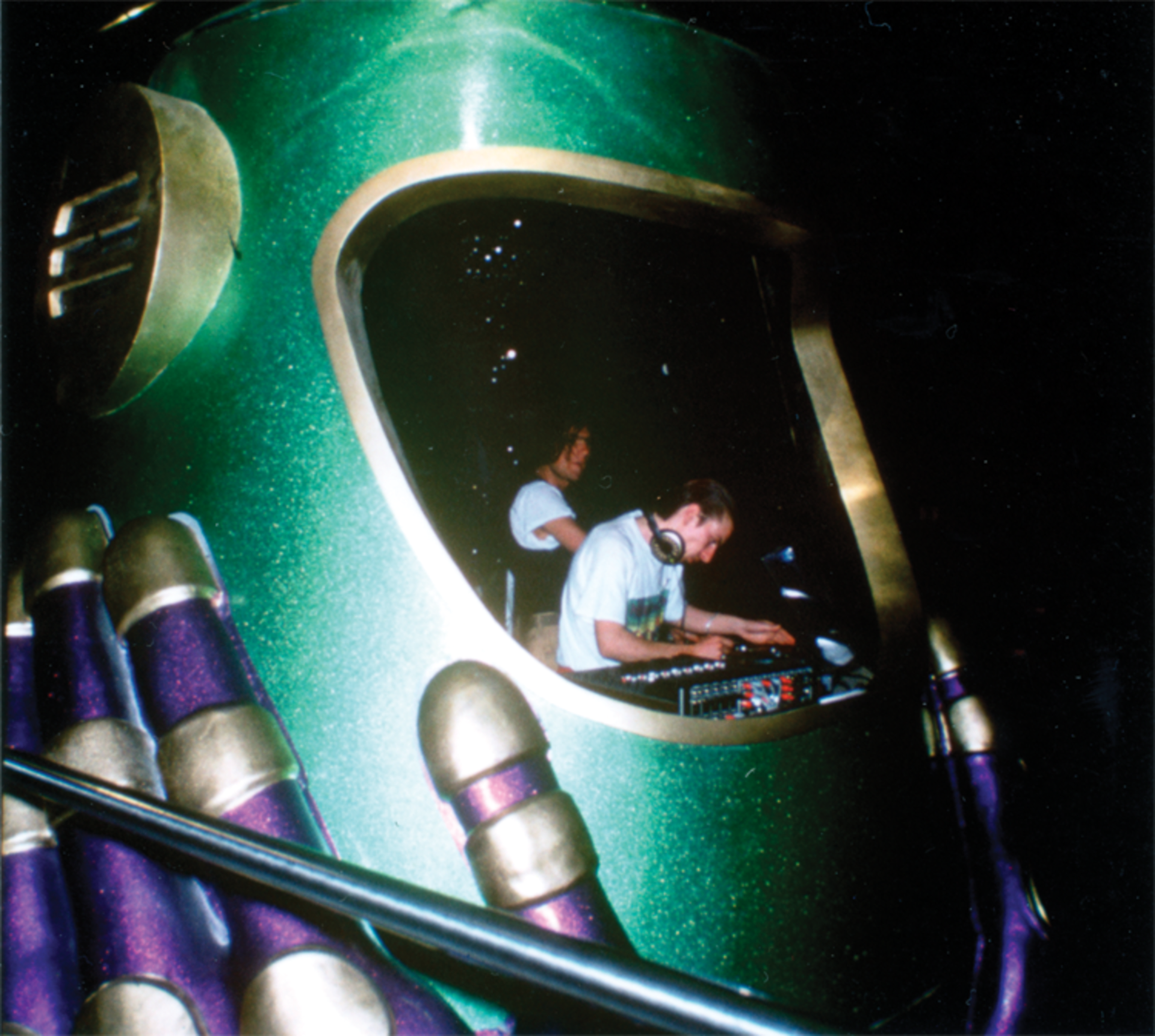
Style Icon: Aurora Halal On Cosmic Pioneer Daniele Baldelli
There’s a spirit in many artists whom I admire—DJ Sprinkles, Drexicya, Dilla—that I would call cosmic. Slippery, submerged, liquid, emotive and disorienting. Beyond the genre tag or style, to me “cosmic” is about ideas, exploration and the blurred edges of sound. But the word is usually associated with the famous musical style developed by Daniele Baldelli in the late ‘70s and early ‘80s, when he pioneered and exemplified those traits as a resident at the Cosmic Club in northern Italy.
Almost 10 years ago, my friend Jan Woo introduced me to some amazing mixes Baldelli and his affiliates, TBC and Mozart, recorded there. DJing as an art form was just beginning to develop, and everything was so playful. In their hands, records slowed until their vocals and basslines merged into an alien murk and funky oozing rhythms contrasted with mechanical Kraftwerk-style electronics. Some blends would go forever, falling in and out of time, teased out as previews for minutes before finally coming in. Sometimes the layering was stressful with two tracks colliding towards a breaking point. This technique is like what Ron Hardy was doing in Chicago, but I doubt he and Baldelli knew of each other. I imagined the DJs in semi-rural Italy distantly envisioning a cosmopolitan New York or Chicago and getting it wrong, yet so right. The distortion on these MP3s made them nearly unlistenable, but that aura was burned into my mind forever.
It is the fantasy of Baldelli that I admire more than anything else. I rarely listen to his style of music anymore, but hearing those tapes at that particular time in my life introduced me to a very potent world of possibility. It’s a half-remembered feeling of an inversion of expectations, a stretching-out of time and space. Not a technique or specific sound, but the feeling of confusion leading to elation and how something happy and uplifting can actually be dark, and vice versa. How a sludgy, churning bass lick can be as blissful as it is menacing. This essential vibe is often missing from music that’s labeled as modern-day “cosmic,” but in my opinion, it can be found in the tracks of Joey Anderson, Via App and many more.
The other thing I loved about Baldelli was that he played this crazy music in a setting built with the expectation of some kind of nightlife-y, Saturday Night Fever vibe. In interviews, he says the Cosmic Club was full of a thousand young kids, actresses and celebrities doing heroin, driving flashy cars, lounging outside. The DJ booth itself was literally shaped like a huge space helmet. But he used the opportunity to make this place a playground for experimentation. He got people to lose their minds dancing, albeit “very slowly,” as he says. It’s a nice example of “dance music” as a meaningful platform for art and transformation. I look to this as proof of what’s possible and absolutely reject the idea that things need to be easily digestible in order to “work.” If it’s working, it’s working.
Header image of the Cosmic Club DJ booth in 1979 courtesy of Daniele Baldelli for Wax Poetics.
Published March 07, 2016.
